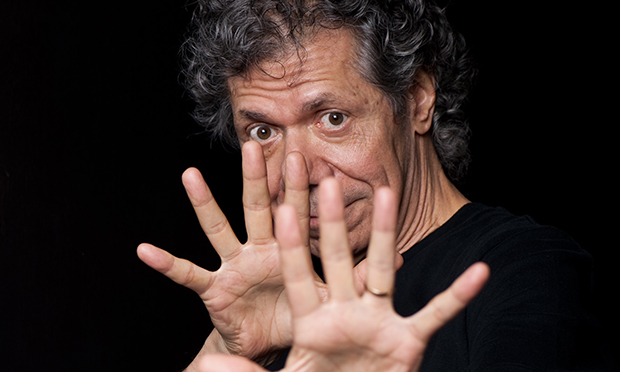Chick Corea jazz review: 'panoptic interpretations yielding plenty of complexity'
It’s hard to introduce Chick Corea without getting mired in hyperbole or desiccated by lists. Briefly risking both: he was a key figure in Miles Davis’ electric excursions of the late 1960s, was at the forefront of the ensuing nascent fusion movement with his band Return To Forever, and has continually innovated in both solo and group contexts since then, bringing to bear flamenco and twentieth century classical influences onto both acoustic and electric jazz. He has also won twenty Grammys in the process.
At the heart of all of this has been his relationship with the piano; no matter how many analogue synths and MIDI patches he used over the seventies and eighties he is principally a pianist, and it was a solo piano date that brought him to the Barbican. Solo piano was good for two reasons. Firstly when multiple jazz statesmen take to a stage together the result can sometimes be stifled by their collective reputations as much as the audience’s stratospheric expectations. Secondly, given that much of his oeuvre has been electric, it was an opportunity to hear him in an unadorned and relatively transparent context.
Despite the gravitas of solo piano in a big concert hall, he was keen not to make things too formal. An impish Chick mounted the stage, his Saga Holiday issue beige velcro trainers belying his seemingly perpetual effervescence. Having exhorted us to imagine we were in a small club, it wasn’t long before he’d shown us some jazz hands standing on one foot, played Bartok over the PA from his mobile phone, and invited audience members up for duets.
The theme for the solo gigs, Chick explained, was a revisiting of various pieces he’d found influential, either in themselves or through being connected to him by the musicians who had popularised them. In doing so there would be an inevitable reinterpretation as he filtered them through the prism of his musical life over the last 50 years, together with a night-by-night re-honing during the series of solo gigs.
Things started with Van Heusen’s ‘It Could Happen To You’ – a tune popularised by Miles Davis. This saw lithe right hand lines shimmering on maudlin chord inversions. The right hand strand kept afloat in Jobim’s ‘Desafinado’. This had a non-brittle delicacy and almost holographic iridescence, as loud pedal releases created staggered, slowly decaying harmonics. Ellington’s ‘Sophisticated Lady’ saw some dense reharmonisation but with Chick circumventing the knots with trademark playful exuberance. This is Corea’s genius. He can present dense harmonic ideas and abstruse chord voicings, but 99 per cent of the time things are entirely digestible. He leaves enough space for the peaks and troughs of tension/release to settle and be fully absorbed.
This carried on in the next piece: Bill Evans’ sublime ‘Waltz for Debby’. Only partially resolved left hand chord inversions built up an ill-defined wanting, before the right hand salve instantiated the famous melody. All this was given time to crystallise and the resolution button wasn’t pushed too soon. We got there, but after a slow ascent and a sustained subtle release.
There was then a percussive nod to Thelonius Monk – with his right foot audibly keeping time through Monk’s ‘Work’ – and an unexpected liaison as Stevie Wonder’s ‘Pastime Paradise’ segued into Chopin’s ‘Opus 17 No 4’. Muted staccato runs and harp like glissandos were allied in Corea’s own ‘Yellow Nimbus’, a piece dedicated to flamenco legend Paco De Lucia and quite possibly the cigarettes that eventually killed him. His own ‘Children’s Songs’ then got an airing – somewhat subdued given that they were to encapsulate children’s energy – before two London locals Hossam Ramzy (darbuka) and Tim Garland (sax) joined for an encore.
None of the evening was marred by any of the aforementioned high expectation. In being condensed into a succinct form, Corea’s omniscient content saw him focus half a century of jazz history into nuanced and articulate pieces that were all highly digestible. This by no means meant a lack of substance, and his panoptic interpretations yielded plenty of complexity to ruminate on, just without the need for the slug of Gaviscon that a lot of jazz with meat on it requires. It was a privilege to be in the same room as this man and a piano. History is still being made, fifty years on.
Chick Corea played the Barbican on 19 May 2014.

